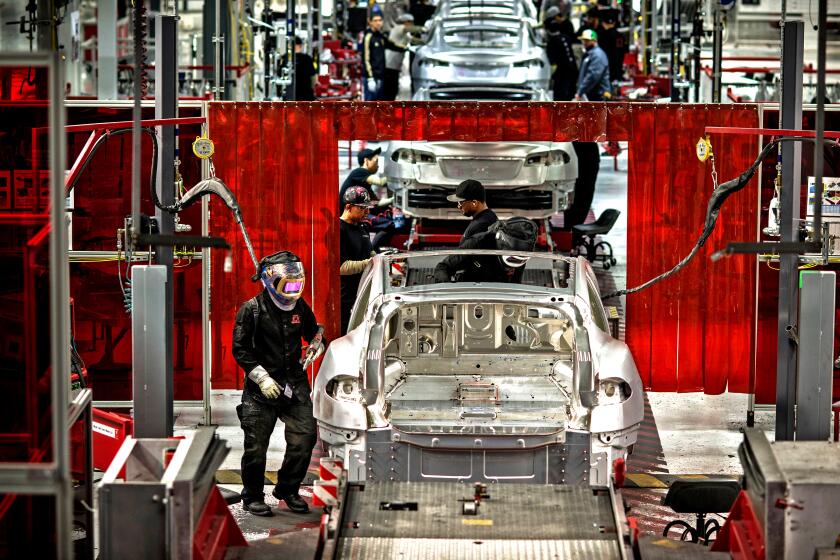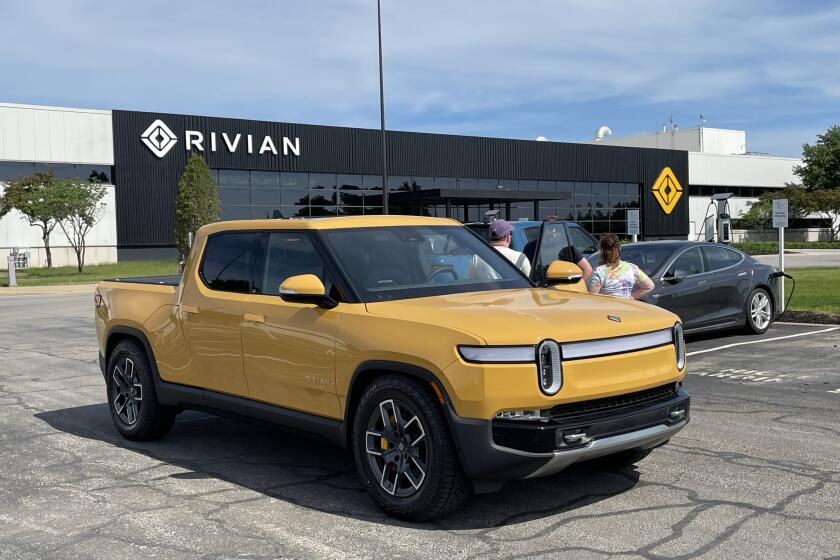Car Makers’ Vintage Whine
When regulators began cleaning up auto exhaust 30 years ago, the reaction from the car makers was that it couldn’t be done. When cars were required to have catalytic converters, one industry executive said the cost could mean “business catastrophe.”
General Motors claimed their customers didn’t want seat belts and that air bags “are not viable because they are not economically practical.” In recent weeks, as the U.S. Senate debated proposed new fuel mileage standards (which were ultimately voted down), the auto makers claimed that stricter standards would make the sport utility vehicle extinct and put soccer moms at risk in tinny little unsafe vehicles.
And here they go again. The same hyperventilated claims are being made in Sacramento as the state Senate considers AB 1058, by Assemblywoman Fran Pavley (D-Agoura Hills).
The measure requires the state Air Resources Board to adopt standards for controlling carbon dioxide in auto emissions, a modest but important effort to attack the problem of global warming. True, California can’t stop global warming on its own, but it can lead the pack in cleaning up emissions, as it always has.
Never mind that no standard would be fixed before 2004 or become effective until the 2008 model year; the auto makers are screaming that they can’t do it. They claim the bill “would destroy consumer choice and destroy entire fleets of vehicles.” An industry ad campaign warns of higher gas taxes, reduced speed limits, a “tax on driving” and “fees on new vehicles.” There is no evidence the bill would result in any of these things.
The auto makers claim the only way to get better gas mileage is to build little, lightweight vehicles--that beloved SUVs would be reduced to virtual golf carts. But the technology exists to reduce carbon dioxide emissions in other ways. European car makers have agreed to cut such emissions by 25% by 2008. They already have reduced them by 6%, and their vehicles got heavier and more powerful, not less.
AB 1058 gives the manufacturers wide latitude in developing the technology. Hybrid electric SUVs, for instance, are already in the works. The standards would have to be cost-effective and technologically feasible and not cause harm to the California economy.
The auto makers’ response is the same old cry of wolf. Can’t be done. Costs too much. But somehow seat belts and air bags and previous emission controls got done, and cars and trucks are better than ever.
Members of the Senate Appropriations Committee can continue this long, fruitful crusade for a better and safer environment by approving AB 1058 when it considers the measure, as early as Monday.



